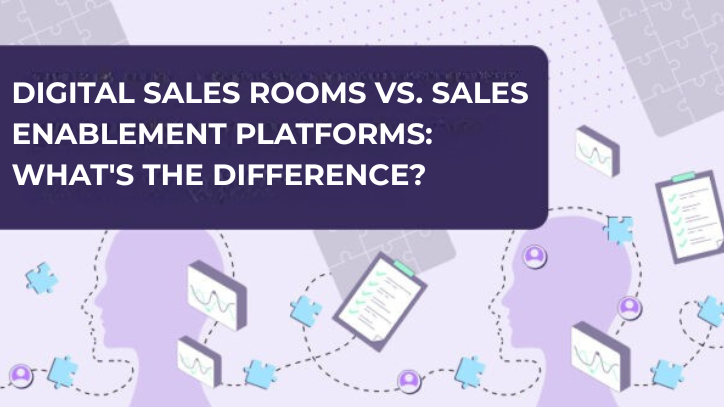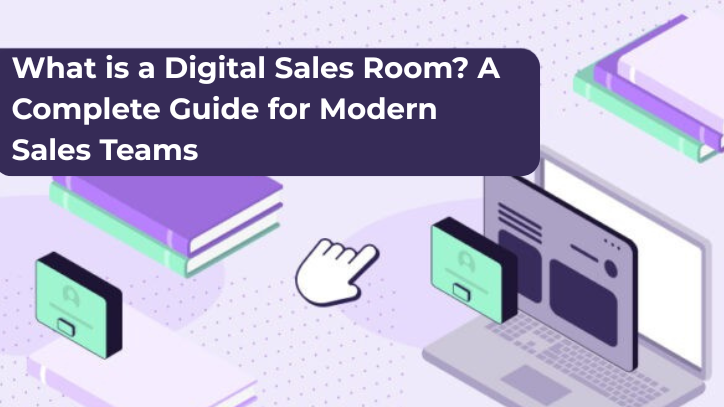Updated on July 17, 2024.
We have a conundrum.
How can any company convince its savviest and most knowledgeable prospective customers to buy from it?
Everyone in the SaaS sales industry can agree that you cannot influence someone like that willy-nilly. Savvy buyers won’t just take your word for it that your product can help solve their problems.
Instead, sales professionals need to prove to the buyer that they can be trusted by becoming reliable consultants. In order to do that, they need to understand the technology intensively.
Which is when we run into the need for a presales team.
What is presales?
Presales is a useful process that yields a lot of value for many companies that offer software-as-a-service and are looking to effectively educate a well-informed audience.
Presales personnel are usually familiar with both the audience and the product, so they are in an expert position to provide buyers with exactly what they need to see in order to close the deal. They will usually do this by creating trials or software demos that prove the product is a worthy choice.
How is the presales team structured within a company?
The presales team has not been around for too long and may sometimes appear to be playing a confusing role. Are they a function of sales? A division within sales? A whole other department to themselves?
Semantics aside, presales is often an extremely valuable part of your company’s overall sales enablement strategy. Their role is crucial to the success of lead generation, sales, and subsequently, revenue growth.
They may sometimes also be referred to as sales engineers, solutions engineers, sales consultants, solutions consultants, value engineers, product consultants, and so on.
Presales is distinct from marketing or other commercial operations that might come before direct sales activity and include tasks like:
- Creating product demos
- Qualifying leads
- Prospecting
- Making discovery calls
- Drafting proposals
- Writing demo scripts
- Market research
- Product research
Your company’s connections will be stronger, in the long run, the more familiar you are with your clients and consumers, as the process is geared to lubricate the sales pipeline.
The role of presales in the B2B sales funnel
Presales activities (like generating, nurturing, qualifying, and following up with leads) help your broader sales team close more deals at a lower cost.
Consider presales as your pitch-specific warm-up where you get the client’s interest and proactively prime them to be interested in knowing more.
Since presales prepares the demos by using a deeper knowledge of the SaaS offering you have, their role is essentially to provide the technical know-how to accompany the sales team’s appeal to the emotional side of the prospect.
They do this by utilizing product demo platforms like Walnut to create an interactive space for prospects to experience the product for themselves.
What is the difference between presales and sales?
Presales personnel understand the product well enough to create demos about its features and how they address the prospects’ needs and solve pain points. A sale is easier to make if a SaaS product can demonstrate to a potential customer how it addresses the challenges it is created for.
While you can think of presales as being like the technical wizards of the GTM team, sales is the relationship builder. They are responsible for gaining a prospect’s trust and developing strong relationships with them.
Sales pros are also the ones that will negotiate and close deals with customers to bring in those dolla dolla bills for the company.
Sales vs. presales comparison
The role played by SaaS presales teams is not just about sales but a way to increase the likelihood that a prospect will sign up after you make your sales pitch.
Here’s what they do to achieve that:
Creating product demos
Presales are usually in charge of the creation of demos based on a deeper understanding of the product or service.
Sales pick up after the demo is ready to go. Essentially, sales use the demos created to sell the product by appealing to the prospects directly.
Interacting with prospects
Presales personnel are usually not the main contacts who talk to the prospects (unless by request) and will often only engage with them when focusing on solving technical challenges.
Sales have to interact with prospects and use the demos created by presales to showcase the product’s values features and what they promise to do.
Their role in the sales funnel
Presales are often utilized alongside the sales team throughout the sales process, helping educate the buyer about how they can use the product.
Sales reps can be involved throughout the sales funnel, from cold outreach all the way to closing the deal.
They mainly focus on
Presales tend to focus on the technical aspect of the product.
Sales seek to drive the point home by appealing to the emotional side of what the product or service intends to address.
How they address pain points
From a technical standpoint, presales often look into details that include what kind of challenges a prospect is going through and how the product or service can solve them from a technical standpoint.
While selling a product or service, a sales representative is responsible for describing how it resolves challenges and pain points, but they should also provide insight into broader strategic issues addressed by the solution.
The role of presales in SaaS
The role played by SaaS presales teams is not just about sales but a way to increase the likelihood that a prospect will sign up after you make your sales pitch.
Here’s what they do to achieve that:
Product demo
Presales engineers are the technical geniuses in the overall go-to-market outfit. With their in-depth understanding of the product, they can create value-focused sales demos that can be sent to prospects in order to educate them about the product.
An interactive demo is a great way to allow prospects to get a hands-on feel for the SaaS product and acts as an opportunity for the SaaS product to highlight how it addresses pain points.
Lead qualification
Presales processes profile the best prospects and their behavioral patterns using sales technology and customer analytics in order to pinpoint those most likely to be captured, allowing sales to focus their efforts and resources on the most valuable leads through lead qualification.
Discovery
Any sales campaign’s cornerstone is the discovery of prospects. It gives all subsequent processes the raw materials to make your value proposition strong and tailored to your specific audience.
These abilities are essential for every presales expert as they form the basis of your customer profiles and personalization needs.
In discovery, perspective is everything. Be inquisitive about your client. Be confident by raising insightful queries. Plan your inquiry strategically and with a specific goal in mind. Think creatively about your customers’ unspoken needs and objectives.
Proposal
The presales process involves highlighting the customer’s core problems and developing a customized solution once a lead has been qualified and validated.
Presales can work in conjunction with the sales department to examine and verify the proposal before it is presented to the client.
Both presales and sales depend on this stage. The objective is to influence the dialogue so that their suggestion is presented as the best course of action.
The presales representative’s capacity to comprehend the client and present a personalized proposal that is laser-focused on their requirements is crucial to that achievement.
Implementation and post-sales services
Although presales place a lot of emphasis on the preparation necessary to make that first sale, they also have a significant impact on client retention and customer onboarding.
Presales collaborates with the sales department to handle client demands during the initial stages of the burgeoning relationship and guarantee that the proposal is successfully implemented when the deal is done.
Presales have insights from the discovery stage, which help customer success managers follow up with the client and can be used for future development, enhancing client contentment, and boosting loyalty.
Best practices when defining presales and sales processes
You have a clear understanding of what both presales and sales are responsible for in the sales cycle.
But before you start defining what your sales and presales processes are going to look like, stop reading and back away from your laptop.
You need to make sure that your process allows for collaboration between both teams so they can each meet their targets.
It’s also important to define clear rules of engagement to avoid any confusion between the different team members.
That’s why it’s essential to make sure both teams work to establish effective communication as well as create a culture of mutual respect and teamwork to ensure that you maintain alignment throughout the organization.
Empower your presales with a powerful demo platform
Product demos are the driving force behind engaging your audience throughout the sales process. That’s why it’s important to make sure your presales team has the sales tech stack they need to make the most high-converting demos possible.
Well-made demos allow sales and presales teams to show off the product’s value in a safe and controlled environment. When personalized and carefully crafted, they can also ensure that the prospect will quickly understand how your SaaS product can solve their specific pain points.
What to look for in a demo platform
When choosing a product demo platform, there are a few things to look out for.
Easy to use
Look for an easy-to-use user experience that presales engineers can pick up quickly.
A demo platform like Walnut, for example, offers cutting-edge features, market-leading capabilities, and a codeless platform that allows presales teams to scale demo personalization. This way they can arm the sales team with hyper-specific demos that focus on each prospect’s unique needs.
Interactive
In the presales tools space, it’s becoming the norm to create self-guided product experiences that allow prospects to walk through the demo on their own. This way they can also be used throughout the b2b sales funnel to showcase the product with a hands-on experience.
It is also a key component of the product-led growth strategy, which lets the SaaS product sell itself on the virtue of its ability to address the prospect’s needs.
Analytics
Both sales and presales teams should want to track which demos were the most effective, what areas of the demo drew the most engagement from the prospect, and whether certain features were less intriguing.
Using a product demo platform like Walnut, sales teams can track their demo engagement and continuously optimize them to improve their performance.
So what are you waiting for? Revolutionize your presales process by clicking that “Get Started” button.





